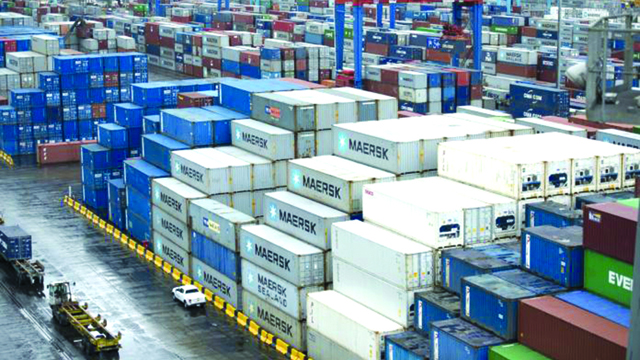Challenges drive investors to Togo, Cotonou, Ghana, Cameroon
EU countries reject 82 per cent of Nigeria’s agro-allied exports

The government’s inability to reduce tariffs and foreign exchange (FX) crisis will continue to give other West and Central African countries a comparative advantage ahead of Nigeria in the maritime business.
Already, Togo has overtaken Nigeria to become the leading port in West Africa. The latest United Nations (UN) report said Togo recorded 1, 725, 520 twenty-foot equivalent (TUEs) cargo throughput in 2020 while Nigeria recorded 1, 528, 520 TUEs in the same year, thereby losing over 196, 750 TUEs or 30 per cent of container traffic to Lome port.
There are also reports of diversion of Nigerian-bound cargoes to Cotonou, Cameroon and Ghana among others. This led to a remarkable increase in traffic in the countries in recent years.
Also, ports within the region have positioned themselves to transhipment hubs and are ready for participation in the African Continental Free Trade Area (AfCFTA) regime, experts have noted.
Hence, the Congregation of Registered Freight Forwarding Practitioners of Nigeria (CREFFPON) has warned that Nigeria would experience lower investment in its ports if the Federal Ministry of Finance and the Central Bank of Nigeria (CBN) do not revise the policy, which has denied importers access to foreign exchange.
The group through its Desk Officer, Edwin Chukwudire Obi, lamented that the Finance Ministry/CBN policies have blacklisted more than 41 import items and denied importers access to FX, leaving them to source for FX from the parallel market.
The group stressed that the CBN FX administration has not impacted both the nation and trade positively. It said the policies promote trade irregularities and non-compliance on the part of the trading public, especially as they struggle to stay in business.
The group said FX illiquidity is a contributory factor to the ailing economy, especially considering the fact that the nation is still import-dependent.
CREFFPON called on the CBN and the supervisory ministry to re-evaluate the impacts of the current monetary regime on businesses with a view to reviewing it.
Also, the President, Shippers Association of Lagos, (SAL), Jonathan Nicol, said Nigeria’s imports would suffer a drop as a result of FX scarcity, adding that importers can hardly pay freight charges, which is $5, 000.
Nicol said freight above $5, 000 is on hold until the freight charges are fully paid upfront, adding that goods attract storage charges abroad while freight is pending.
He said such restriction is counter-productive as a lot of industries are grossly affected by the policy.
He lamented that Nigeria has lost about 360 textile industries due to the harsh business conditions
“We have to unban textile materials so that we won’t go naked. Our tyres industries are operating outside Nigeria. Whatever it will take to resuscitate our industries, the Federal Government Economic Team should brace up to restore our dignity,” he said.
Nicol said President Muhammadu Buhari’s promised to provide forex for industries and manufactures and that this is crucial because of the importance of local production to the economy.
Nicol stressed that another major challenge was the seizure and rejection of 82 per cent of Nigeria’s agro-allied products by the European Union (EU) countries due to illegal exportation, without certification by government agencies.
He said with the huge percentage of the country’s export cargos being rejected, farmers would suffer adversely.
According to him, revenue will dwindle where there is a shortfall in imports and exports.
Meanwhile, the CREFFPON who commended the services of barge operations to remedy the port congestion cautioned barge operators to streamline their tariffs for efficiency.
The group also expressed displeasure at the Nigeria Customs Service (NCS), shipping companies, terminal operators and others for declaring excess revenues amidst low cargo throughputs.
The group urged the Nigerian Shippers’ Council to revamp and institute an industry pricing system to promote competitiveness and meet the international best practices, noting that the cost of doing business in the Nigerian ports is still very high and does support a healthy economy.



